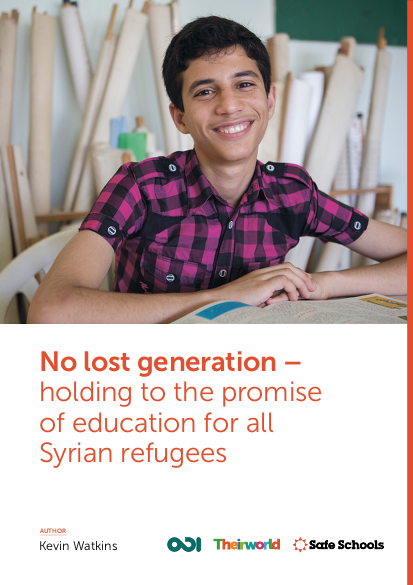
The Syria conflict has given rise to the world’s worst humanitarian crisis since the Second World War. Some 4.8 million people have fled the country as refugees. Another 6.6 million are displaced in Syria. The country’s civilian population has been subjected to widespread and systematic violations of human rights. Meeting at the London Conference on Supporting Syria and the Region in February 2016, the international community recognised that current efforts to support Syria’s displaced population and refugees in neighbouring countries were falling far short of the minimum levels required. Pledges in excess of US$12bn were announced. Those pledges have not been honoured. The gap between pledge and delivery is hurting Syria’s children.
Nowhere is the gap between pledge and delivery more damaging than in education. The international community has repeatedly undertaken to ensure there will be ‘no lost generation’ of young Syrians denied an education. Yet almost six years into the conflict, the education system in Syria is in freefall – and a generation is being lost. Minimal support is reaching the parents, teachers and community groups striving to deliver education in Syria itself. The plight of Syrian refugee children in neighbouring states, the subject of this report, remains dire. Almost 1 million of these children are out of school – and many of those in school are at risk of dropping out. These children are at immediate risk of falling into child labour, early marriage and recruitment by extremist groups. Restricted access to education is also a powerful driver of migration. Like parents across the world, Syrian parents see education as a pathway to opportunity and a better future for their children. Unsurprisingly, many refugee parents undertaking the hazardous journey to Europe cite the search for education as a major factor behind their move. The bottom line is that Syria’s refugee children have suffered enough. Having escaped the horrors of war in Syria, they should not have to sacrifice their education – and they have a right to expect the international community’s best effort.